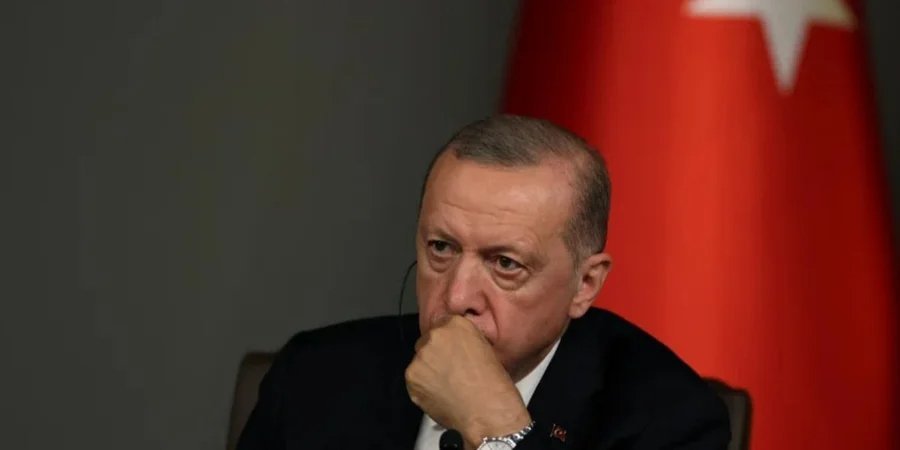Turkish President Tayyip Erdogan and Russian dictator Vladimir Putin will discuss a new mechanism to allow Ukrainian grain exports through the Black Sea during Putin’s upcoming visit to Ankara, Reuters reported on Feb. 4, citing the country’s Foreign Minister Hakan Fidan.
Erdogan and Putin are scheduled to meet in Turkey on Feb. 12, marking Putin’s first visit to a NATO ally since Russia’s full-scale invasion of Ukraine in February 2022.
Read also: Ukraine, Poland enter talks on grain export quotas
There are efforts to find “new methods” to transport Ukrainian grain to the world markets, Fidan said in an interview with private A Haber television.
“The previous grain deal worked within a certain mechanism,” Fidan said.
“Now it has been seen that there is a possibility of going with a different mechanism, and there are efforts to concretize this possibility,” Fidan said, adding that Erdogan will raise this issue in his meeting with Putin in Turkey.
Read also: ‘To gain our own statehood, we must fight; to preserve it, we must unite’: Zelenskyy on UA Unity Day
Ankara has been trying to convince Russia to return to the Black Sea Grain Initiative, which Moscow withdrew from in July 2023, a year after it was implemented.
Kyiv has said talks were underway to revive the deal, but Moscow said there was no prospect of reinstating it.
Fidan said some ships had managed to transport Ukrainian grain from the Black Sea, even without the accord in place. “We want to clarify this de-facto [situation] with the new mechanism.”
Read also: Existing Ukrainian Black Sea grain export routes ‘not sustainable’ — UN
Earlier, it was reported that Putin plans to visit Turkey in February. Ukraine is expected to be “one of the key issues” in the talks with Erdogan.
“Moscow remains ready for peaceful discussions on settlement with Ukraine, but Kyiv has banned such talks,” Putin’s foreign affairs aide Yuri Ushakov previously said.
The current maritime export routes for Ukrainian grain in the Black Sea are not sufficiently reliable or predictable, the spokesperson for the UN Office for the Coordination of Humanitarian Affairs, Saviano Abreu, said in an interview with the Ukrinform news agency on Jan. 10.
At the beginning of the war, Russia blockaded Ukrainian Black Sea ports and disrupted maritime trade in the region. This led to enormous consequences, since nearly 400 million people, including in Africa and Asia, depend on food exports from Ukraine.
In July 2022, the UN and Turkey mediated a deal that allowed for safe passage of civilian cargo vessels to and from Ukrainian ports in the Black Sea, pending inspections by Russian officials who verified the ships were not delivering arms to Ukraine.
Russia officially terminated its participation in the Black Sea Grain Initiative on July 17, 2023. At the same time, Moscow withdrew its guarantees of safe navigation in the Black Sea.
The Ukrainian Navy announced on Aug. 10, 2023, new temporary routes for civilian vessels to and from Black Sea ports after the suspension of the grain deal involving the UN, Turkey, and Russia in July.
Ukraine has independently established a grain corridor in the Black Sea, Vice Prime Minister for European and Euro-Atlantic Integration, Olha Stefanishyna, said during a briefing at the representation of the European Commission in Vienna on Nov. 23.
Ukraine, without an agreement with Turkey, the UN, or Russia, has secured a Black Sea grain corridor on its own, stated Stefanishyna, quoted by Ukrinform news agency.
In November 2023, Ukrainian President Volodymyr Zelenskyy announced that in less than three months, Ukraine had exported 6 million tons of goods through the temporary grain corridor. Russia is gradually losing control over the Black Sea and retreating to the eastern part of the waters.
We’re bringing the voice of Ukraine to the world. Support us with a one-time donation, or become a Patron!
Read the original article on The New Voice of Ukraine


